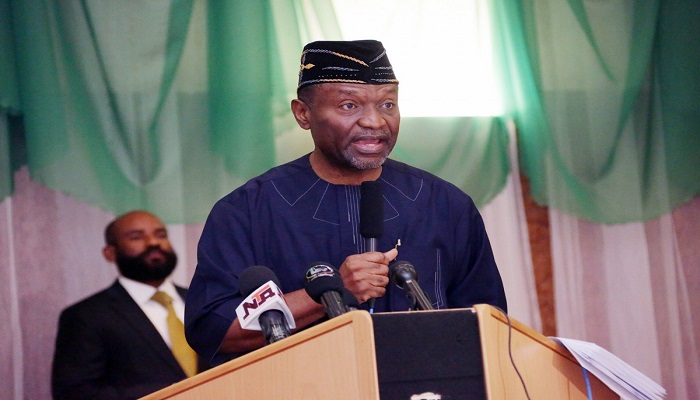Nigeria’s plan to shift more of its borrowing overseas may improve its lackluster recovery from recession. But it’s likely to raise risks associated with servicing its debt amid scant progress on reducing the government’s reliance on oil revenue. There’s also mounting uncertainty about federal government tax income amid demands for more regional power from state governors and friction within the ruling All Progressive Congress (APC) party.
Nigeria’s President Muhammadu Buhari is seeking parliamentary approval to issue $5.5 billion in foreign bonds before the end of the year to finance the 2017 budget. If successful, this sale would more than double Nigeria’s outstanding U.S. dollar-denominated debt to $9 billion. The proposed issue is part of a government strategy to shift its debt portfolio toward 60% domestic and 40% external from a current 84:16 split by the end of 2019. This is aimed at improving the availability of domestic credit for the private sector.

On the face of it, this decision might be viewed as good maths as the yield on Nigeria’s existing Eurobonds trade at around 10 percentage points lower than domestic local-currency bonds of similar maturity. But higher inflation puts downward pressure on the naira, which means that borrowing in a foreign currency may become more expensive than it looks. A higher degree of foreign borrowing would also impair the authorities’ ability to counter economic shocks by reducing interest rates because doing so would prompt exchange-rate depreciation and drive up the servicing cost of public-sector debt in foreign currency.

Admittedly, allowing for a weaker currency has reaped few rewards as an economic policy tool in Sub-Saharan Africa because of the many constraints on boosting export volumes, which are mainly commodities, and a lack of domestically-produced substitutes for imported manufactured goods. This has often meant that devaluations of African currencies has made external-debt servicing more onerous without providing a boost to economic growth. This, in turn, has forced creditors to write down substantial foreign loans in debt relief operations over the past two decades.
Nigeria’s Finance Minister Kemi Adeosun has previously spoken out against the government increasing its borrowing unless it raises revenue. It’s unclear to what extent the latter is happening. Statistics for 1H indicate that progress has been meager, with non-oil revenue 30% below the levels foreseen in the 2017 budget. Oil revenue has been even worse.
But both revenue streams picked up in July, according to a new series of monthly data released by the National Bureau of Statistics. This was likely connected to an increase in crude output, as estimated by analysts surveyed by Bloomberg News and a higher oil price. It’s too early to say if it represents a change in the trend.

It looks likely that Buhari’s poor health will prevent him from contesting another term at elections due in February 2019 and this has ignited a race for leadership of the APC. Nigerian politics has become more competitive as the dominance of the People’s Democratic Party has waned in the past decade. Whoever fills the power vacuum will need the support of state governors, which creates incentives to increase regional revenue sharing and other concessions.
Devolving Power May Raise Fiscal Risks
The election will also take place against a backdrop of greater pressure for the devolution of spending and revenue raising powers to regional authorities. A committee of the APC headed by Kaduna State Governor Nasir Ahmad El-Rufai, who is viewed as a strong contender to succeed Buhari, has outlined two paths on the devolution issue. One is more gradual, similar to that being undertaken by the current administration. The other is more rapid through constitutional and legislative action in national and state assemblies. It’s unclear how much support there is for the second, more radical approach, but there’s no doubt that further fiscal devolution will eat into how much central government has available to service its increasing public debt.
By Mark Bohlund and Tim Farrand
(Bloomberg Intelligence)











